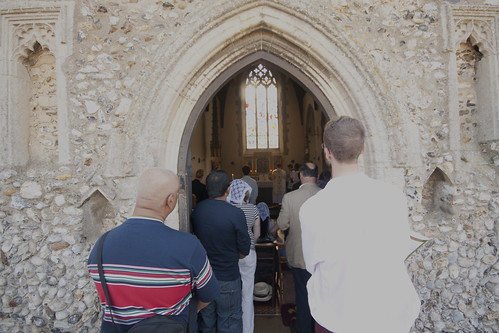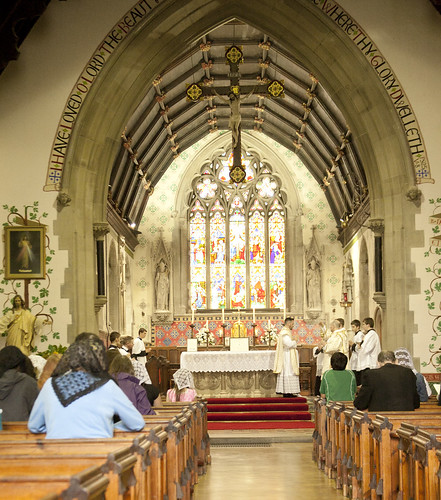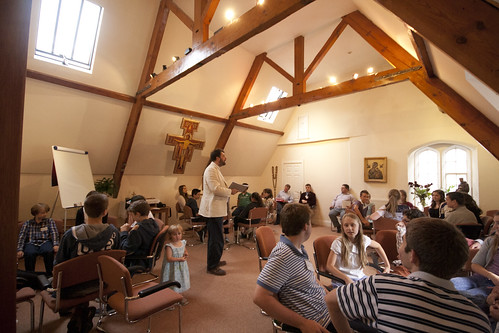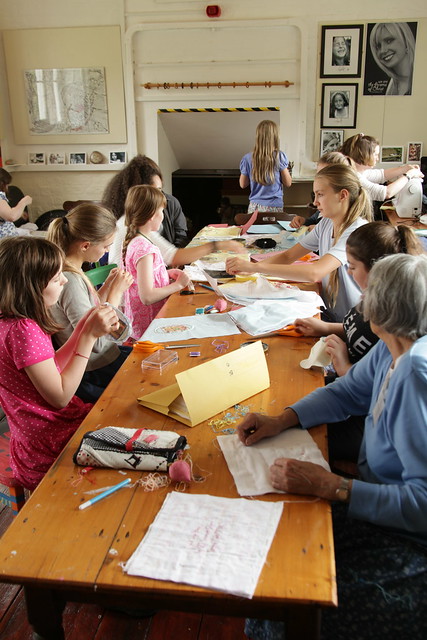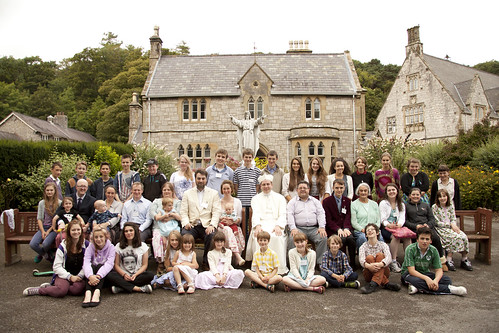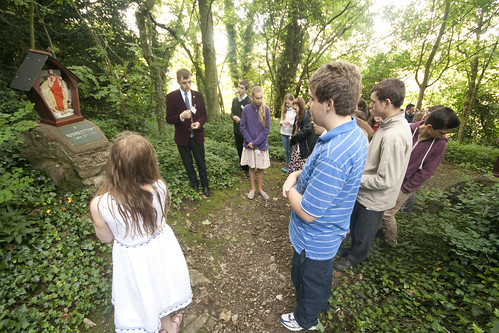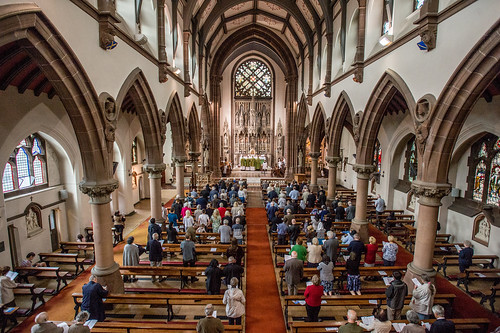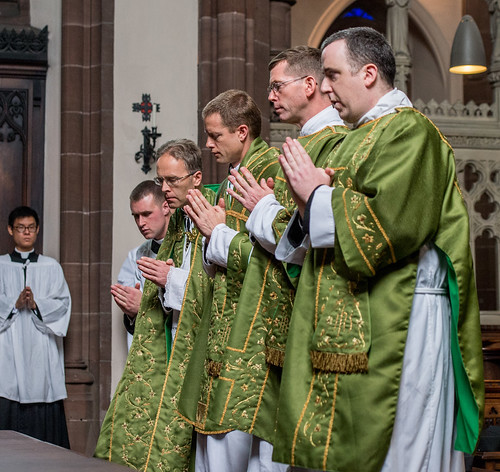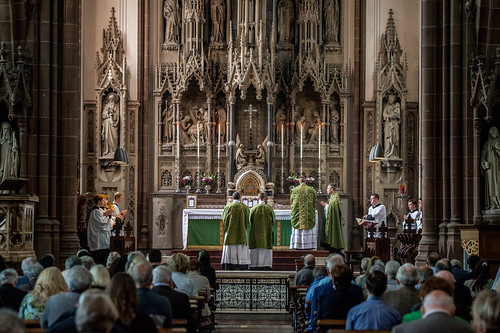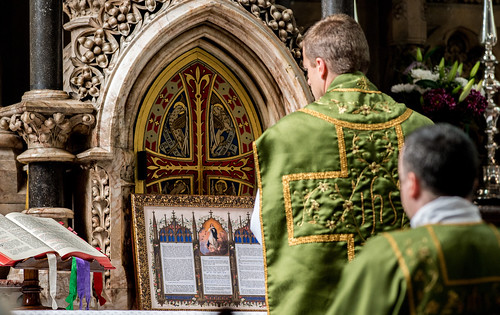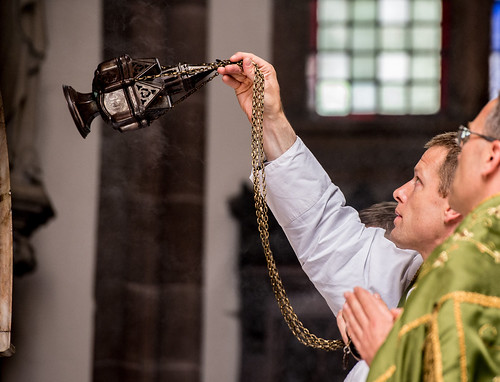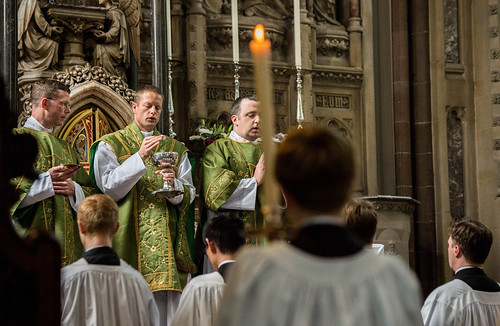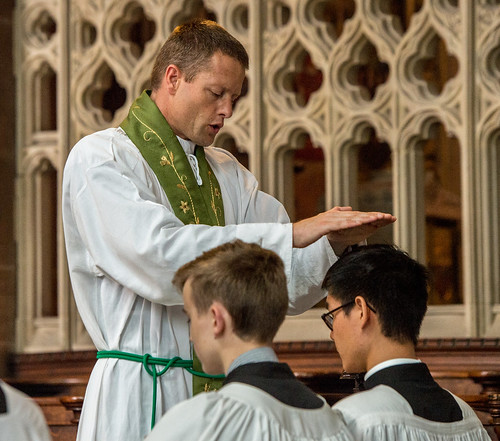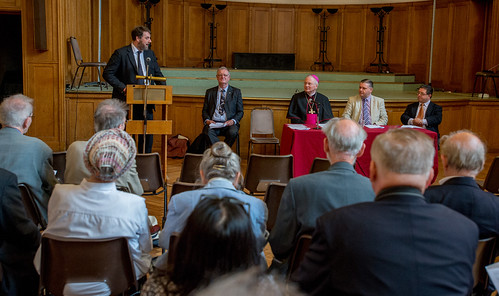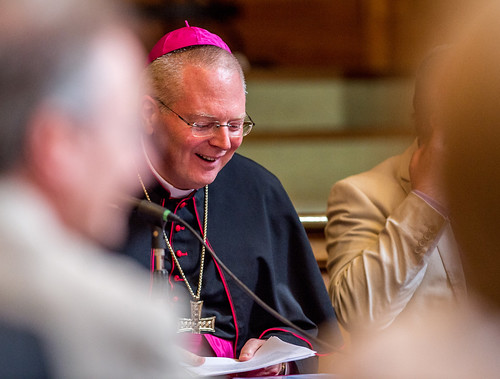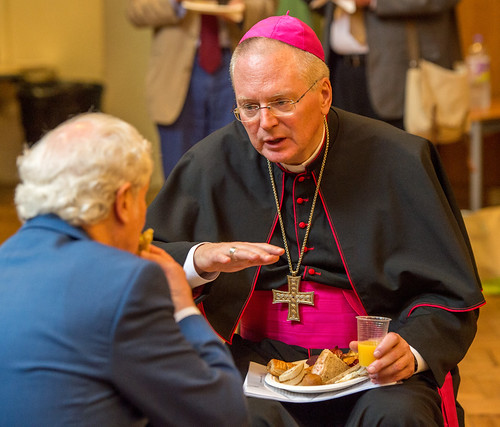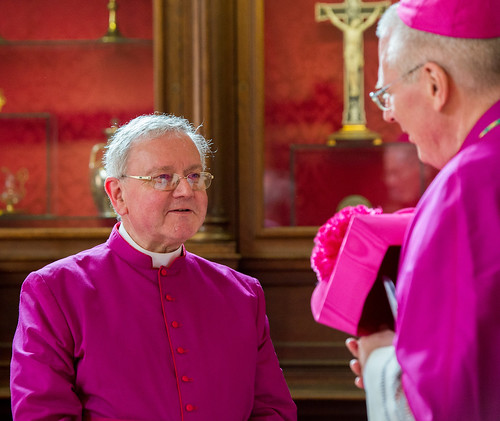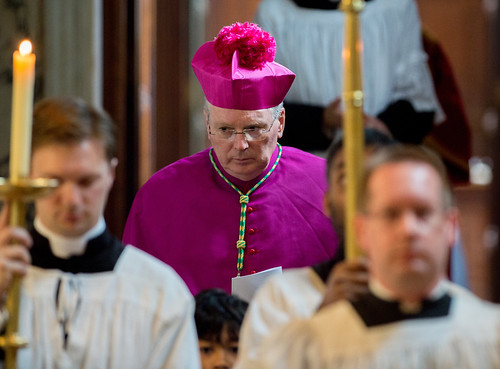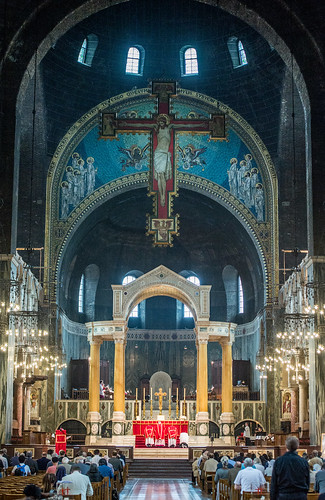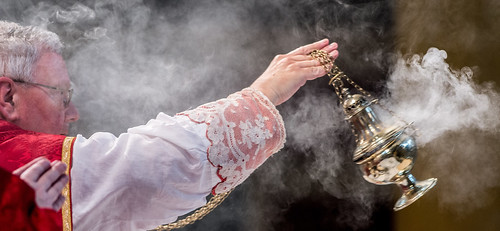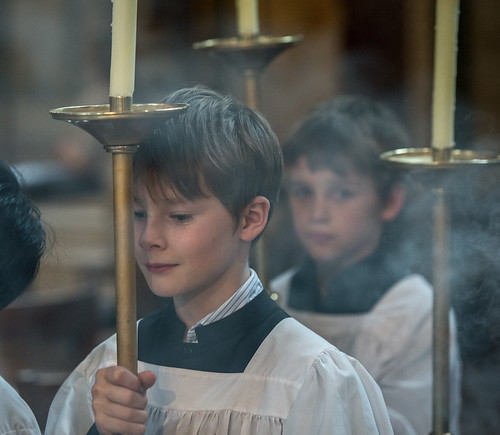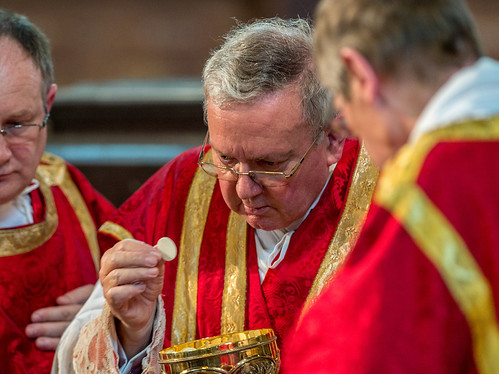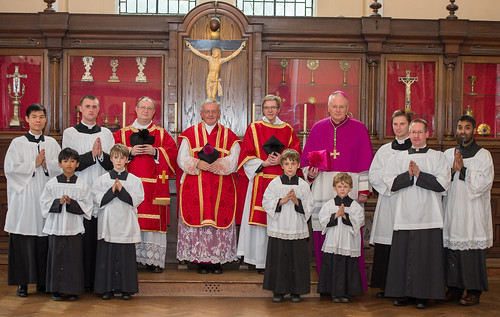Chairman's Blog
Young Catholic Adults: annual retreat at Douai
During the weekend of the 28-30 October 2016, Young Catholic Adults will be running a national weekend at Douai Abbey, it will be led by Fr. Thomas Crean O.P. The weekend will be full-board. YCA will be running the weekend with the Schola Gregoriana of Cambridge of Cambridge who will be holding Gregorian Chant workshops.
There will also be a Marian Procession, Rosaries, Sung Masses, Confession and socials. All Masses will be celebrated in the Extraordinary form.
Please note to guarantee your place this year Douai Abbey have requested that everyone books in 3 weeks before the start of the weekend i.e.7th Oct 2016.
For online booking please see:-
https://v1.bookwhen.com/yca-
Support the work of the LMS by becoming an 'Anniversary Supporter'.
Islam and the decadent West
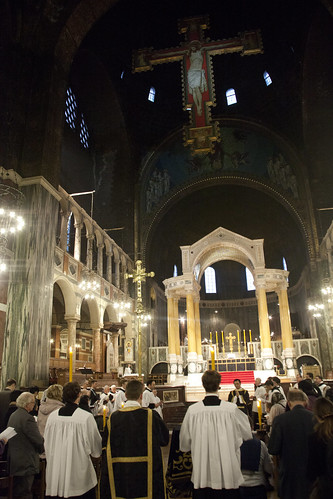
Reposted from last November, in light of the new massacre, in Nice. Requiescant in pace.
---------------------------------
I've not had time to write anything about the terrible massacres in Paris. It was good to be able to attend a solemn Mass for the dead the day after the killings had taken place. Every Mass for the dead, and practically all traditional prayers for the dead, even if they are for the benefit of a specific person or group of persons, is also for 'all the Faithful departed'.
May they rest in peace. And may God protect us all from an unprovided death.
I've done a number of blog posts criticising the approach to understanding and tackling Islam taken by various people, notably the zealous Evangelical David Wood, and the American Syrian Catholic Robert Spencer. In the comments to one of these posts a reader recommended a book by a Jesuit who hails from the Levant, Samir Khalil Samir, which proved to be excellent. Samir has given a very interesting interview to Edward Pentin, in which he explores the way the West is seen from the Arab Muslim perspective, an important factor, obviously, in these attacks.
Here are some extracts:
Muslims know that modernity is coming from the West; this is a fact. Now they see the West as having lost its ethics, especially on sexual questions. They’re very shocked by what they see or hear. … So they say this comes from modernity. They want to reject the excesses and abuses of some principles, but end up rejecting the whole thing. The problem is that the West is responsible, without knowing it, of the reaction of the Muslim world.
...
When Muslims see that, they immediately recall that homosexuality is absolutely condemned in the Quran, with reference to the biblical Lot. See chapters 7: 80-81; 11: 77-82; 15: 58-74; 21: 74; 26: 165-166; 27: 54-55; 29: 28-30; 54: 33-34. In some cases, they were burned alive. Then the Muslims say, “Okay, the West is Christian, Christianity allows this, and so Christianity is not the true religion; it’s a false religion. And we want to be true, to stick to the Quran and to the tradition.”
This means we are partly, indirectly responsible for the fanaticism that is spreading more and more in Islam, as a reaction to the West — not only, but this also — and playing a role in the radicalization of Islam.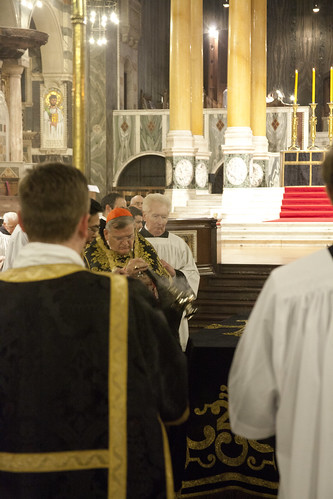
We have to be careful, in responding to terrorism, that we don't allow acts of terror to give a kind of legitimacy and political importance to extreme views, views unpopular even with an ethnic or religious population the terrorists claim to represent. 'Most Muslims reject the ideology of ISIS', goes the mantra, and I have no doubt that it is true. What we do need to do, however, is to consider the issues which give terrorists whatever degree of popular support they do have, for by dealing justly with the legitimate concerns of the population from which the terrorists come, one can begin to drain the swamp.
The Eagles Of Death Metal band was in the middle of the show when the assailants attacked the Bataclan.
Pseudonym of its singer: The Devil Jesse Hughes. In a European tour to defend their new album Down Zipper (!), the first in seven years, the rockers were playing on stage the Title: Kiss the Devil when the first shots were heard inside the room…
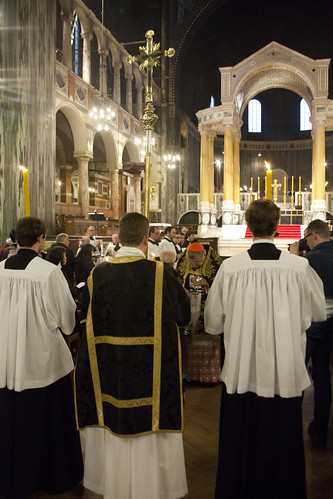 Western culture has major aspects which are an affront to God, to the Natural Law, and to Reason. What I have argued here, is that what we urgently need is a critique of the decadent West which is specifically Catholic, at once sane and radical. As I wrote:
Western culture has major aspects which are an affront to God, to the Natural Law, and to Reason. What I have argued here, is that what we urgently need is a critique of the decadent West which is specifically Catholic, at once sane and radical. As I wrote:"The problems posed by the de-secularisation of the world are not going to be solved overnight, but we can do something to stop making things worse. We can assert the Catholic critique of the decadence of Western culture, especially sexual culture. If there is one concrete gesture which might make those being drawn towards militant Islam stop and think that, perhaps, the Catholic Church may not be part of the problem they are trying to address, then it might be the restoration of head-coverings in church by Catholic women in the West. This would signal a rejection of both decadent sexual mores and of the attack on the difference between the sexes.
"Contemplate the likelihood of this happening any time soon, and you will glimpse the depth of the problem."
Support the work of the LMS by becoming an 'Anniversary Supporter'.
Book now for the Walsingham Pilgrimage!
There is a deadline: Monday 15th August. This is necessary for the caterers and other aspects of the pilgrimage; please don't try to book after that date! Do it before! Do it now!
The Pilgrimage runs from Thursday 25th (we gather in the afternoon and evening in Ely) to Sunday 28th, when we have our big Mass in Walsingham at 2pm, followed by a procession to the site of the Holy House. Some stay the night in Walsingham but it is possible to get back to London on Sunday. If you stay until Monday morning, we have another Mass, sung, in the Slipper Chapel at 10am.
We walk over three days the 55 miles from Ely to Walsingham, accompanied by the Traditional Mass and devotions, in the spirit of the great Chartres Pilgrimage.
Here is a little video about it. The booking page has lots more information.
It is an unforgettable experience, plus hot evening meals!
Show your devotion to Our Lady, walk in the footsteps of your Catholic predecessors, do some penance and take some important intentions to the feet of the Lady of Walsingham.
The cost is £75 for an adult, if you are an LMS member - and you can join at the same time.
There are generous discounts for students, and all are welcome.
Book here.
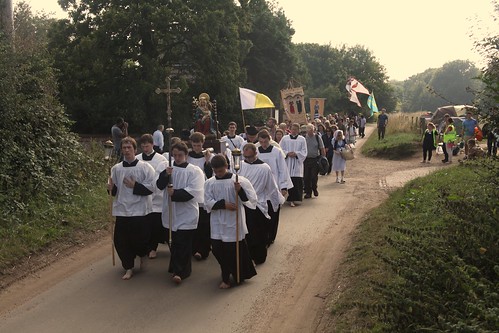 |
| Procession along the 'Holy Mile' to the site of the Holy House in Walsingham, from the Slipper Chapel and Catholic Shrine |
Support the work of the LMS by becoming an 'Anniversary Supporter'.
Last call: SCT Summer School 2016
The dates are Sunday 24th July to Sunday 30th July.
This is something I've been doing since 2005, and it is one of the most exciting, and (for me!) exhausting event I'm involved in each year. We have a little school, for just a week, with maybe 30-40 children: lots of interesting discussions, lots of prayer, lots of fun.
The Summer School is for children aged 11-18; there is NO FEE, parents and guardians make a donation at their discretion. It is run by St Catherine's Trust with the support of the Latin Mass Society.
Click here for our downloadable application form in PDF format.
Click here to apply online
It takes place at the Franciscan Retreat Centre at Pantasaph, 10 minutes from Flint station, half an hour from Chester. We can offer lifts there from London. It has a Pugin chapel, and is home to the National Shrine to St Pio of Pietrelcina (Padre Pio).
As well as liturgy and catechesis, the Summer School introduces children to wide range of subjects, including history, philosophy, history of art, Latin, music and drama, an ideal Catholic supplement to homeschooling or conventional schools, Catholic or not.
We have all sorts of children, from all over England and Wales, Scotland, Ireland, and a few from further afield. It is a great experience for them to meet children from like-minded families, and many come year after year. Don't let your children miss out!
Support the work of the LMS by becoming an 'Anniversary Supporter'.
SPUC Conference
Details and booking here.

Support the work of the LMS by becoming an 'Anniversary Supporter'.
Video intereview with Gloria TV
Last October, when I was in Rome for the FIUV General Assembly and the Summorum Pontificum Pilgrimage, I was interviewed by Eva Doppelbauer of Gloria TV. Here is the result.
Support the work of the LMS by becoming an 'Anniversary Supporter'.
First High Mass for Fr Mawdsley: photos
Fr James Mawdsely celebrated a High Mass in St Mary's, Warrington, the FSSP church. As is usual at such Masses, because he is a new priest he has an 'assistant priest' (as a bishop does at Mass), so there are four sacred ministers, not just three.
Wednesday 13th July, 7pm.
Solemn High Mass at St Joseph’s, Gateshead, NE8 1LX.
Thursday 14th July, 12noon.
Low Mass at SS Joseph, Patrick & Cuthbert’s, Coxhoe, Co Durham, DH6 4DA.
Friday 15th July, 6pm.
Low Mass at St Andrew’s, Ravelston, Edinburgh, EH4 3DS.
Saturday 16th July, 12noon.
Solemn High Mass at the Church of the Immaculate Heart of Mary, 162 Broomfield Road, Glasgow G21 3UE.
Sunday 17th July, 11am.
Solemn High Mass at St William of York, Reading, RG1 5JP.
Support the work of the LMS by becoming an 'Anniversary Supporter'.
Cardinal Sarah on Liturgical Orientation
 It it always interesting to see arguments about liturgical orientation, the priest 'facing east' in Mass, since this is an important characteristic of the Church's liturgical tradition. Cardinal Sarah mentions it in a list of things which might be done to make celebrations of the Ordinary Form more worthy, along with a greater use of Latin, kneeling, and the discouragement of photography. It is not exactly a full-dress treatment of the issue, and nor is it new. In his talk he refers back to an article he wrote for Ossovatore Romano and the work of Pope Benedict. He could equally have referred to the writings of Cardinal Schonborn, who is quoted in the FIUV Position Paper on Liturgical Orientation. In this particular talk, Cardinal Sarah throws it out as a nice idea:
It it always interesting to see arguments about liturgical orientation, the priest 'facing east' in Mass, since this is an important characteristic of the Church's liturgical tradition. Cardinal Sarah mentions it in a list of things which might be done to make celebrations of the Ordinary Form more worthy, along with a greater use of Latin, kneeling, and the discouragement of photography. It is not exactly a full-dress treatment of the issue, and nor is it new. In his talk he refers back to an article he wrote for Ossovatore Romano and the work of Pope Benedict. He could equally have referred to the writings of Cardinal Schonborn, who is quoted in the FIUV Position Paper on Liturgical Orientation. In this particular talk, Cardinal Sarah throws it out as a nice idea:
This practice is permitted by current liturgical legislation. It is perfectly legitimate in the modern rite. Indeed, I think it is a very important step in ensuring that in our celebrations the Lord is truly at the centre. [Full text]
What is rather amazing, however, is the reaction to these remarks. Cardinal Nichols has written to his priests, the Vatican spokesman Fr Lombardi has made a statement, even Fr Spadaro SJ and Austen Ivereigh have felt the need to get in on the act: all with a view to contradicting the basic idea, that celebration facing east would be a good idea. Of course, they, like Cardinal Sarah, are all entitled to their opinions, and Cardinal Nichols is not just entitled, but obliged, to exercise prudential judgement in guiding his priests. The debate has been marred somewhat by a technical dispute over the correct translation of a passage in the General Instruction of the Roman Missal - this is the kind of tedious issue which those who are really interested can look up in a footnote in the Position Paper (see footnote 1). But let me say something about the bigger picture.
This debate is inevitable and intractable because both sides are right.
Cardinal Sarah, Pope Benedict, Cardinal Schonborn and Fr Michael Lang (in his book Turning Towards the Lord) are perfectly and undeniably correct that from a historical and theological perspective worship 'versus populum', facing the people, creates a problem. It doesn't invalidate the Mass or anything like that, but it is for practical purposes a massive rupture in historical continuity, for all the precedents which can be argued for it, and gives expression to a conception of the liturgy as (in the words of Pope Benedict) a 'closed circle', the community 'worshipping itself'.
Not only is this second point the impression gathered by those, like Pope Benedict, with an acute ear for what is going on in the liturgy, but it follows from what the supporters of vs. pop. celebration themselves say in its defence: that they want to engage face-to-face with the priest, that they prefer chairs-in-a-circle type celebrations, that they want to emphasise community, and so forth.
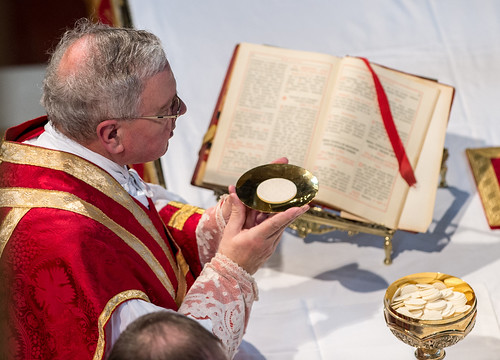 |
| Facing East to make the offereing. |
On the other hand, Cardinal Nichols, Fr Lombardi and the others are perfectly and undeniably correct that, for practical purposes, celebration vs. pop. is an integral part of the liturgical reform. Yes, celebrating the other way is allowed, as is celebrating in Latin. But in both cases the thrust of the post-conciliar documents is that these are things allowed for only in particular situations with particular justifications. For example, Latin is suggested for international gatherings. Celebration ad orientem is conceded, for example, where the altar cannot be moved away from the wall because of its historical or artistic value (see the Position Paper footnote 2).
Yes, it is true that the rubrics make reference to the priest turning around at certain points to face the people. (Fr Spadaro quoted one of these, apparently under the impression that it implied the celebrant faced the people all the time, when it does the opposite.) Well, they have to, if the concession is made that Mass can ever be celebrated ad orientem. And anyway, this is an amazingly weak argument. Just as--whatever Vatican II in Sacrosanctum Concilium said--Pope Paul VI told the world that the reform meant Mass in the vernacular, in the same way his big, media-event Mass to inaugurate the reformed Missal on the first Sunday of Advent 1969 was vs. pop.
Vs. pop. celebration is simply one aspect of a coherent programme of reforms which aimed at promoting a particular form of liturgical engagement. It goes with the use of easy-to-understand vernacular, the drastic reduction of the use of silent prayers by the celebrant, the replacement of the Church's musical patrimony with music the congregation can itself sing, the theological simplification of liturgical texts, and the shortening of lengthy ones. The multiplication of lay liturgical roles like readers and Eucharistic Ministers are a natural extension of the same idea. By all means let us discuss the success or failure of the project, by all means question the kind of participation being aimed at. But let's not pretend that there is a 'genuine reform', intended by some mysterious 'spirit of the Council', which comprises some of these elements and not others. They may not all have been mentioned in Sacrosanctum Concilium, and indeed official documents are in many instances in tension with each other, but they all pertain to a single conception of what liturgical participation means, and to this extent they stand and fall together.
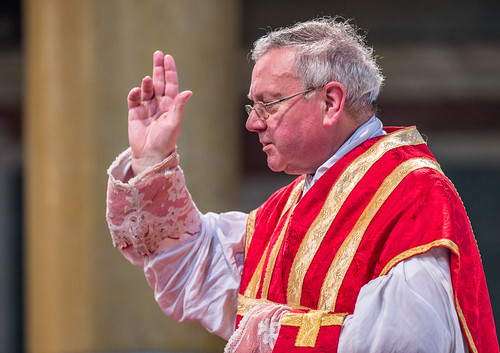 |
| Facing the people to give them a blessing. |
Those attached to the kind of liturgical participation brought in by the post-Conciliar reforms see, with varying levels of explicitness, worship ad orientem as a major step away from those reforms: and they are correct to do so. This is why attempts to introduce ad orientem can cause civil war in parishes. And the danger of civil war is one reason, I have no doubt, that it stimulates such a rapid response from people like Cardinal Nichols and Fr Lombardi.
The organisers of the Sacra liturgica conference, aiming to show that the Reform of the Reform agenda is still alive and kicking, have succeeded in showing just the opposite. There is absolutely no future in trying to inch back the reform in the teeth of this kind of opposition, any more than the First World War could be won by waves of infantry charging machine guns in order to gain territory a hundred yards at a time.
As I have argued on this blog before, it is a far simpler and generally more pastoral way forward for priests to introduce the Traditional Mass into the parish schedule, than to go to war over ad orientem and all the other issues in the Novus Ordo. Since, as I have argued, celebration versus populum is problematic, I admire and support priests who make the change to ad orientem in the Ordinary Form. What I can't do is defend them against the kinds of arguments which will inevitably be brought against them: that what they are doing is contrary to thrust of the post-Conciliar reform. Because it is.
I've written about the Death of the Reform of the Reform under its own label on this blog, and there are even more posts about the Reform of the Reform.
The turning around of the priest to greet the people during the Traditional Mass is itself an interesting topic, noted at the beginning of the Position Paper on the Kiss of Peace.
Support the work of the LMS by becoming an 'Anniversary Supporter'.
Photos of LMS AGM and Annual Mass in Westminster Cathedral
The AGM was addressed by Archbishop Thomas Gullickson, Nuncio to Switzerland and Lichtenstein.
Here he is chatting, over lunch, with one of the Latin Mass Society's Patrons, Lord Gill.
The Mass which followed the AGM was celebrated by our National Chaplain, Mgr Gordon Read. Archbishop Gullickson sat in choir.
Mgr Read was assisted by Fr Matthew Goddard FSSP (deacon), and Fr Mark Elliot Smith of the Ordinariate (subdeacon). We were blessed with three Fraternity seminarians in the serving team, including Matthew Palmer the Master of Ceremonies.
Support the work of the LMS by becoming an 'Anniversary Supporter'.
Catholic academics and pastors appeal to the College of Cardinals over Amoris laetitia
Press Release
Support the work of the LMS by becoming an 'Anniversary Supporter'.


